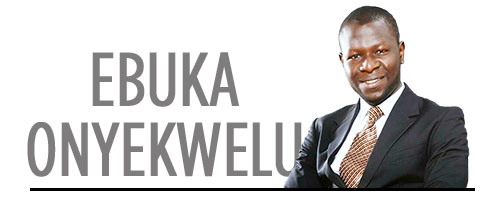“The mere fact that Southeast leaders often try to resolve the symptom instead of the problem translates to postponing the doomsday,” —Ebuka Onyekwelu
There has been a sustained call for the release of the leader of the prescribed Indigenous People of Biafra – IPOB, by Southeast leaders. So many leaders of the Southeast have called, cajoled, appealed, and begged the Federal Government to release unconditionally, Nnamdi Kanu. Months ago, the governor of Anambra state Prof. Chukwuma Soludo asked that Kanu be released to him. Only last week, many leaders of the Southeast met in Abuja and discussed how to meet President Bola Tinubu to also demand the release of Nnamdi Kanu. That meeting was the first time in a very long while, Southeast leaders across political lines and many other divisions, are meeting for any reason to make a common demand.

At face value, the first impression would be that Southeast leaders are waking up to leadership demands on their officials and assuming responsibility by virtue of their positions. More so, the clamor for the release of Nnamdi Kanu by Southeast leaders is the exact opposite of the treatment given to them by Kanu. It would be recalled that Southeast leaders were the biggest object of scorn by Kanu and his followers. So intense was their derision that even Southeast thought leaders and intellectuals who had no public trust were not spared. They were labeled “otellectuals”, in a clever dismissal of their relevance to the scheme of things in the Southeast. However, today, it does appear that many have closed ranks and left all the loquacious disdain in the past. This, by far, is a show of leadership deserving of commendation.
But moving on, after the release or pending the release of Kanu, what plans do Southeast leaders have to bridge economic gaps which is the major force behind what metamorphosed into a security crisis for the zone? Beyond the call for the release of Nnamdi Kanu, what else do the Southeast leaders intend to do to mitigate the certainty of the emergence of more “Nnamdi Kanu” in the nearest future? This is where the task gets really interesting. Essentially, it does somehow appear that there is a sense that the release of Nnamdi Kanu by the Federal Government will put an end to disappearing opportunities that have been a major source of frustration among the youth population and to that degree, a conducive environment for insecurity to excel. One might be tempted to think that the clamor for the release of Kanu, once heeded, holds the key to justice in and for the Southeast. But this is certainly not the case. Frankly, with all the energy and focus going only towards the release of Nnamdi Kanu, the implication is that after his release, and at the end of this phase, the Southeast will continue to deal with the same problems that gave rise to the current situation in the first place. The mere fact that Southeast leaders are reactionary, and trying, only to resolve the symptom instead of the problem itself, is at best an attempt at postponing the doomsday.
Matter of fact, Biafra remains attractive to many youths of the Southeast because they have no stake in the current scheme of things. The insecurity thrived initially because then, the masses had assumed that with the disorder, they were about to take their destiny into their own hands. Although reality has now shaped that perspective, yet, they believe that the new country they hoped for, is to them, better than what they have in Nigeria and the Southeast. Real or imagined, this thinking is strong and difficult to wither. Biafra, I had argued, is a natural born child of inequality, systemic imbalance, and lack of a sense of belonging by the masses, in their own government. The people’s inability to rely on their government for anything and the overwhelming fact that their future remains at the brink, are some of the things that make Biafra attractive. The predominant thinking is that Biafra, at least, offers something more beautiful which makes far more sense than their current situation, even if only promissory. At least, it is untested, unlike the government that has promised and failed in perpetuity.
Therefore, efforts at arresting the insecurity in the Southeast must go beyond the release of Nnamdi Kanu. Southeast leaders must give the same persistent, focused, and collective attention to matters of justice, and economic opportunities for especially the youth, and must renew the broken relationship between the government and the governed, through responsive and responsible governance. Southeast leaders who are not government officials must also create an impact in their communities through their influence and networks, as part of their own contributions towards providing direction and opportunities for youths. If this is not done while the attention remains only on Kanu’s release, then, it is needless to say that more Kanus are only ahead waiting to happen.

